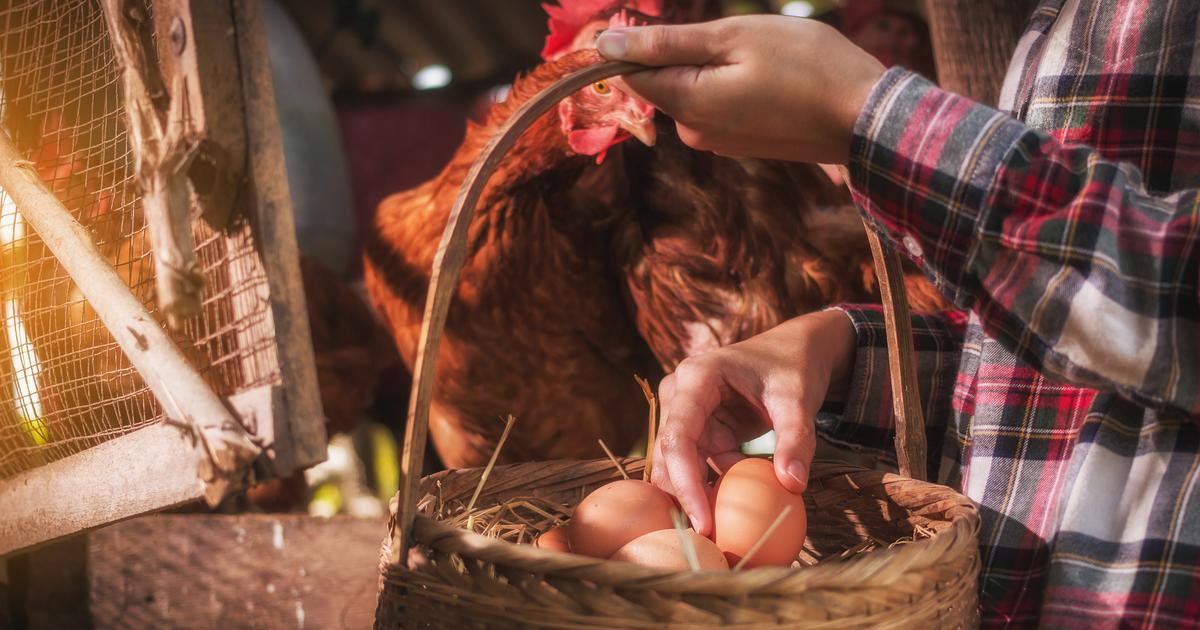Hobby chicken keepers generally benefit from a steady supply of fresh eggs. However, the rate of egg consumption does not always correspond to that of hens laying eggs. How long can eggs be left in the chicken coop before they become unsafe to eat?
To discover
What to plant, sow or harvest in March?
How long can chicken eggs stay in the chicken coop?
How long chicken eggs can stay in the coop depends on several factors, including ambient temperature and storage conditions.
In summer, high temperatures can accelerate the egg deterioration process. Therefore, it is recommended to collect eggs at least once a day to prevent them from staying in the coop for too long.
In winter, cooler temperatures can extend the shelf life of eggs in the coop. However, it is always best to collect eggs regularly to prevent them from freezing. This is because frozen eggs can crack and deteriorate quickly once thawed.
How often should eggs be collected?
Ideally, it is recommended to collect an egg as soon as possible, preferably early in the morning and late in the evening.
Also read Chicken coop: how to protect chickens in winter?
Why shouldn't you leave eggs in the henhouse for too long?
Too long in the henhouse, eggs lose their freshness. Faced with dirt, bacteria and parasites in the environment, their cleanliness and food safety are compromised.
Another important reason not to leave eggs in the coop for too long is the risk that your chickens will start eating their own eggs. This behavior may seem strange, but it can occur if the eggs remain in the nest for an extended period of time. The longer eggs are left in the nest, the more likely they are to be broken, which can cause chickens to eat them.
Conversely, if the eggs remain in good condition and your hen is fertilized, it is possible that she will go broody. This means that she will attempt to incubate the eggs to hatch them and raise the chicks.
It is important to note that even if the eggs are not fertilized, a hen may still decide to go broody. In this case, she will not lay eggs for a few days.
Finally, if you wait too long to collect your eggs, predators will do it for you. Indeed, foxes, snakes, raccoons and rats are attracted to eggs and will not hesitate to come and devour them.
Also read: The neighbor's dog is killing my chickens, what should I do?
How do you know if an egg has gone bad?
Determining egg freshness can be a challenge. Fortunately, several simple methods can help you assess whether your eggs are still suitable for consumption.
The smell test |
The visual test |
The float test |
|---|---|---|
The rotten egg gives off a distinctive and unpleasant smell of sulfur or decay. |
A rotten egg may have a cracked shell, spots, or mold marks. |
Fill a container with water and place the egg in it. A fresh egg will tend to sink and stand horizontally or slightly tilted. On the other hand, a rotten egg will tend to float on the surface of the water due to the release of gases inside. |
Good to know
Eating expired eggs poses real health dangers, including the risk of food poisoning due to the presence of bacteria such as Salmonella.
How to keep eggs fresh from the henhouse?
The egg is considered “
fresh
” the first 9 days following its laying. To remember the dates, you can add them in pencil, on the day of laying, on the shell. You can store your eggs
for up to approximately 3 weeks/1 month.
By storing them in a closed box or cardboard box upside down - so that the yolk remains well centered - and at an ambient temperature of 20°C, you will be able to keep them a little longer. Contrary to popular belief, it is not useful to put them in the refrigerator unless the ambient temperature exceeds 20°C. Finally, do not eat a boiled egg the day it is laid, as the shell will remain stuck to the egg.
Good to know
Do not wash or rub the eggs because you will destroy the film that protects the shell and helps preserve them.
What can you do to improve the quality of your chickens’ eggs?
To improve the quality of eggs produced by your chickens, make sure you provide your animals with a balanced and nutritious diet. Especially with a mixture of grains, fresh vegetables and foods rich in calcium such as oyster shells. Also make sure your chickens always have access to fresh, clean water.
Provide your chickens with a clean, safe and comfortable environment with adequate lighting. Indeed, exposure to natural or artificial light for approximately 14 to 16 hours per day can promote better egg production.

